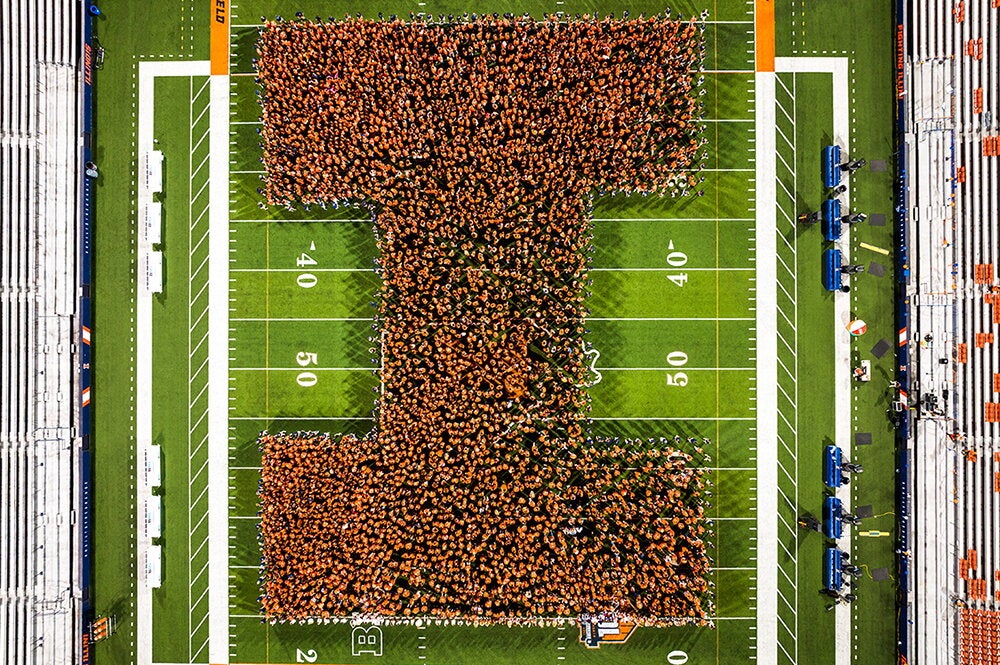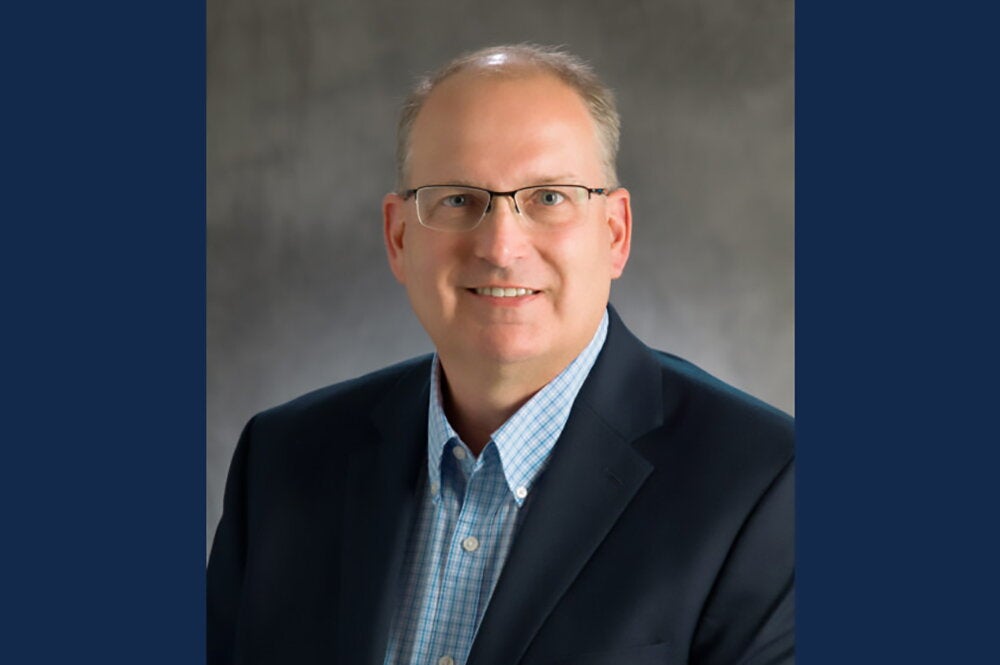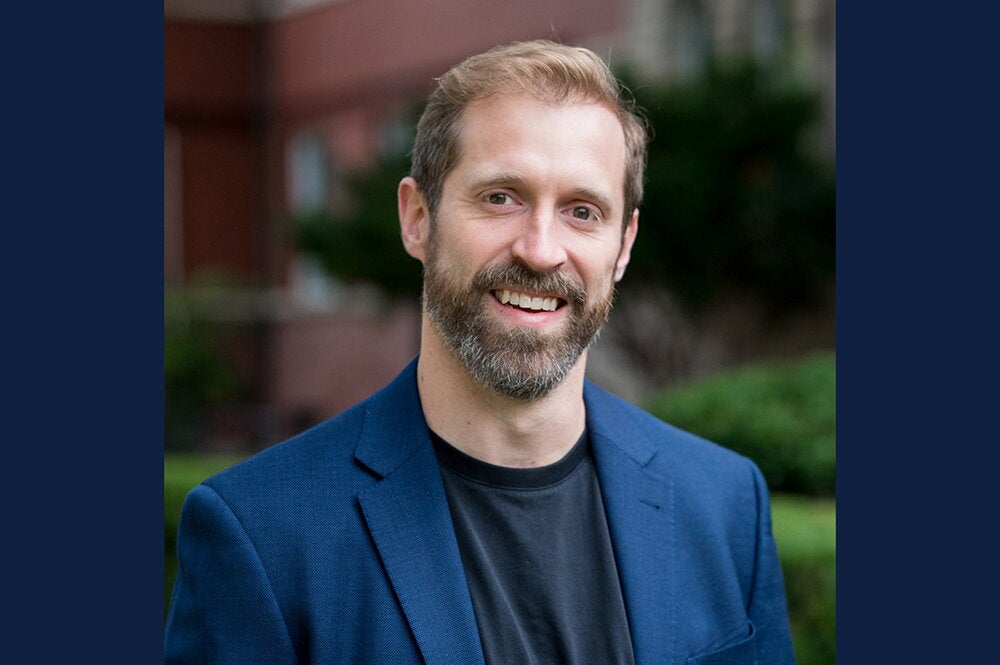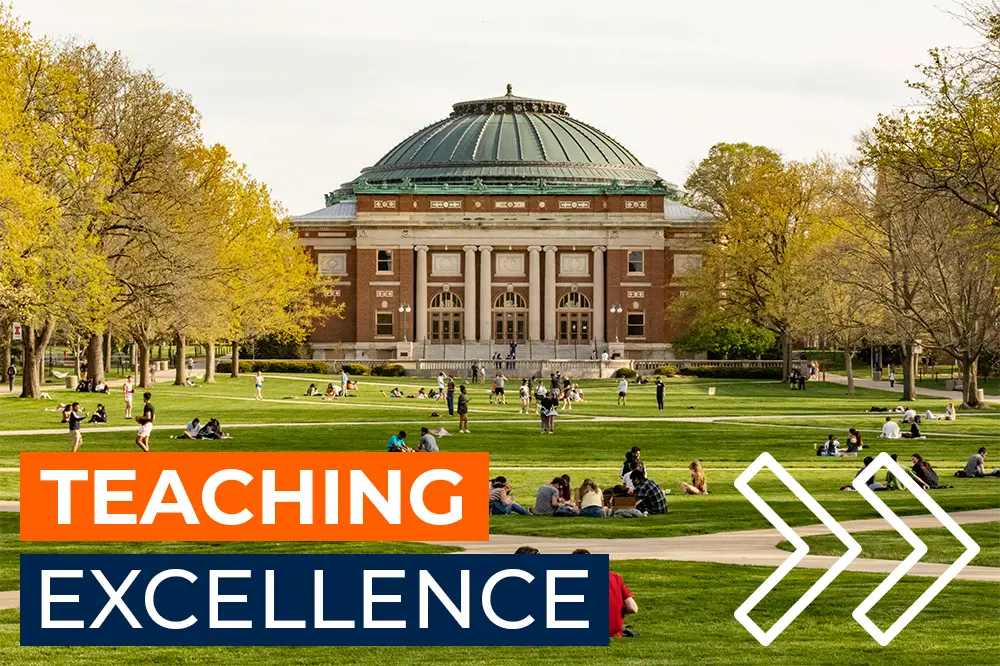
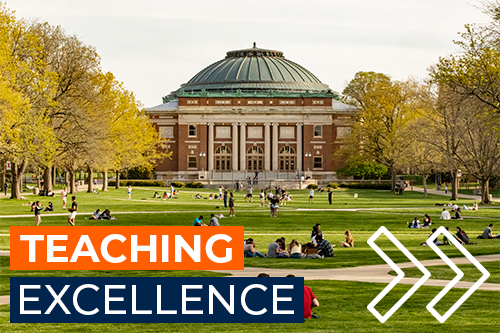 The College of LAS has selected 14 professors, graduate students, lecturers, and an advisor as the recipients of the 2023 teaching and advising awards.
The College of LAS has selected 14 professors, graduate students, lecturers, and an advisor as the recipients of the 2023 teaching and advising awards.
“The LAS community is extremely proud of these outstanding educators and advisors,” said Venetria K. Patton, Harry E. Preble Dean of the College of LAS. “We're fortunate to have such innovative, empathetic, and dedicated individuals working to help our students achieve their goals.”
Descriptions of the recipients follow:
LAS Awards for Excellence in Undergraduate Teaching for Graduate Teaching Assistants
Kristin Bail is a graduate teaching assistant in the Department of Political Science. Bail designs courses, assignments, and classroom experiences with a particular focus on the needs of first-generation students. This includes incorporating small-group work to help students build confidence, helping students relate what they are learning to real-world situations, and connecting with students as individuals. One student praised her for creating a “tight-knit community atmosphere” while a professor who has worked with Bail noted that she brings “enthusiasm, rigor, and empathy” to her teaching.
Marissa Chesser, a graduate teaching assistant in the Department of Mathematics, was praised by nominators for creating a student-centric classroom and using a variety of approaches to engage students in active learning. Undergraduate students appreciated her energy and compassion, noting that “she clearly cared about the well-being of her students” and “made it clear that we should not be afraid of asking for help.” As a doctoral student in the department since 2017, Chesser has taught in the Merit Program for Emerging Scholars, served as head teaching assistant for both calculus III and precalculus, and has been the independent instructor for elementary mathematics. She also has been a mentor for the Merit Program and Illinois Geometry Lab and volunteers with a program that engages middle-school girls in math and science.
Erin Hoffman, a graduate teaching assistant in the Department of English, tailors her rhetoric and creative writing courses to provide students with individualized experiences. Students mentioned that Hoffman brought energy, enthusiasm, and positivity to every class meeting. “Even on days when I entered the classroom sleepy, tired, or simply bored, it only took five minutes of her witty remarks, timely humor, and big welcoming smile to draw me back into the content and engage actively,” wrote one former student. As assistant director of the Program in Professional Writing, Hoffman also is a resource to fellow teachers and has renovated fundamental business and technical writing courses.
Kenneth Jops, a graduate teaching assistant in the Department of Plant Biology, is known for going the extra mile to help students not only succeed in a specific course but to also more broadly apply concepts and tools and prepare for the next step in their college and career path. Over five semesters of teaching integrative bio courses, he has supported and encouraged students to meet a high bar in their learning. “I knew I would always get the support I needed to get through the rigorous…concepts we covered,” wrote one student. Jops also has been independently pursuing additional teaching training and certification in using new pedagogical tools.
Mina Nahvi, a graduate teaching assistant in mathematics, has taught a range of math courses to students from diverse academic backgrounds in her five years at the university, including a challenging 300-level course in abstract mathematical thinking. She has taken graduate courses in education to better understand pedagogical theory; in the classroom, she focuses not just on the subject matter but on the specific experiences and issues that influence each student’s learning. “Her teaching made me want to learn more,” wrote one student. “I could feel her hard work and her effort to go above and beyond what we needed to make sure we succeeded.” Nahvi also has been a mentor to first-time TAs in the Merit Program, supervised undergraduate research, and served on the department’s Climate, Equity and Inclusion Committee.
Katie VanDyne, a graduate teaching assistant in the Department of Spanish & Portuguese, has excelled while teaching 11 different courses in her six years with the department. She has been the instructor of record for elementary and intermediate Spanish language courses, Spanish composition and grammar, and 300-level courses for Spanish majors and minors. Students praised her skill in making challenging concepts clear, as well as her energy and enthusiasm. One wrote that her “contagiously positive energy, as well as her willingness to get to know all her students on a personal level, helped to create a tight-knit community atmosphere.” VanDyne also has pursued professional development, working toward both the Graduate Teacher Certificate offered by the Center for Innovation in Teaching & Learning and the Mentoring Certificate offered by the Graduate College.
LAS Award for Excellence in Undergraduate Advising
Gary Wszalek, head undergraduate advisor for the Department of Psychology, has been supporting the department’s students for more than 22 years. He helps students navigate their courses and career preparation, supervises the department’s other academic advisors, and spearheaded and continues to refine a psychology orientation course that is required of all incoming first-year psychology majors. Wszalek works tirelessly to connect with the more than 500 students in his advising portfolio; students noted that he is “exceptionally patient and readily available” and that he has an “outstanding ability to understand the unique needs of each student.” He is a repeat honoree, having received the LAS Award for Excellence in Undergraduate Advising in 2009-2010.
LAS Dean’s Awards for Excellence in Undergraduate Teaching
Janice Harrington joined the Department of English in 2007 and has proven to be an invaluable member of the Creative Writing Program. Students appreciate that she tailors course activities to meet their needs and interests. When the COVID-19 pandemic forced a swift switch to online instruction, students noted that Harrington responded with “vigor and energy” and was able to keep “motivation high and spirits raised.” Students also recalled the wide variety of prompts Harrington used to spark their creative efforts—a music box, postcards—and the way she encouraged students to experiment and accept failure as part of the process.
Eugene Lerman, mathematics, has been with the university for 25 years. While he has taught courses at all levels, he excels in teaching highly advanced pure and applied mathematics. Lerman revises and his improves his courses with a focus on keeping students engaged and helping them overcome common obstacles to understanding challenging concepts. “He was exceptional in his ability to break down rigorous mathematical arguments into simple questions and statements, making the math accessible and insightful,” wrote one student. Students also appreciated his use of humor, with one commenting that “his infusion of some fun reminds me that mathematics is not for the sterilization of the mind but for its enrichment.”
Ghassan Moussawi has been a professor of gender and women’s studies and sociology since 2016. Colleagues know him as a committed and engaging professor who is adept at navigating the challenges of interdisciplinary teaching. He also employs innovative pedagogical approaches and uses new technologies and software to facilitate student learning. Through his scholarship, teaching, and service, he demonstrates a sincere and sustained dedication to expanding access, equity, and support for people and groups historically marginalized in higher education. A former student praised his respect and compassion, particularly during the COVID-19 pandemic, noting that he “demonstrated what an intelligent and supportive professor can achieve across digital and physical spaces alike.
Sepideh Sadaghiani, psychology, emphasizes active learning and has adopted iFlex interactive classrooms for her courses. A colleague who observed her teaching praised her as “confident and engaging, accessible, and…good at reading the class and adjusting her explanations accordingly.” She also strives to develop future academic leaders. A former student who is now pursuing doctoral studies wrote that “there is no doubt in my mind that she is molding the minds of every student she teaches, steering a diverse and intelligent set of budding scientists towards the moonshot of our generation: understanding the complexities of the human brain.”
Valeria Sobol joined the Department of Slavic Languages & Literatures in 2003. She has an infectious enthusiasm for the material she teaches and creates an open and inclusive atmosphere in which her students both feel welcome to contribute their perspectives and knowledge and are challenged to think creatively and critically. A former student who was inspired to change her major after one of Sobol’s courses wrote that “the passion and dedication that Dr. Sobol shows when teaching reignited my love for and interest in literature.” In addition to regular instruction of core departmental courses, Sobol has contributed innovative courses that expand the curriculum, such as a course focusing on the Caucasus in the Russian cultural imagination.
LAS Award for Excellence in Undergraduate Teaching for Instructional Staff
Michael Hurley is a lecturer in the Department of English. He is a dedicated teacher of a range of rhetoric and writing courses, and many students shared how his classroom welcomed them to campus or to a writing community and built their confidence. He “made me feel like I had found a second home,” said one student. Another wrote that his “teaching led me to one conclusion: I need poetry in my life.” A student in his literary editing course also praised Hurley’s “attention to detail and wizard-like knowledge."
Robert Kanter is an associate clinical professor in the School of Earth, Society & Environment. In addition to imparting his own clinical expertise in experiential learning and clear communication of environmental issues to students, he is adept at integrating field trips and visits from alumni and other experts into his courses. He has developed new courses in environmental writing, environmental multimedia communication, and environmental and sustainability field study. The first two of those courses form the nucleus of the certificate in environmental writing, a program that Kanter started in conjunction with the Institute for Sustainability, Energy, and the Environment and the Department of English. Students praise his dynamic and supportive teaching style, with one writing that Kanter “is the type of teacher who makes students want to learn. His classes are full of participation, insight, fresh ideas, humor, and making connections.”
